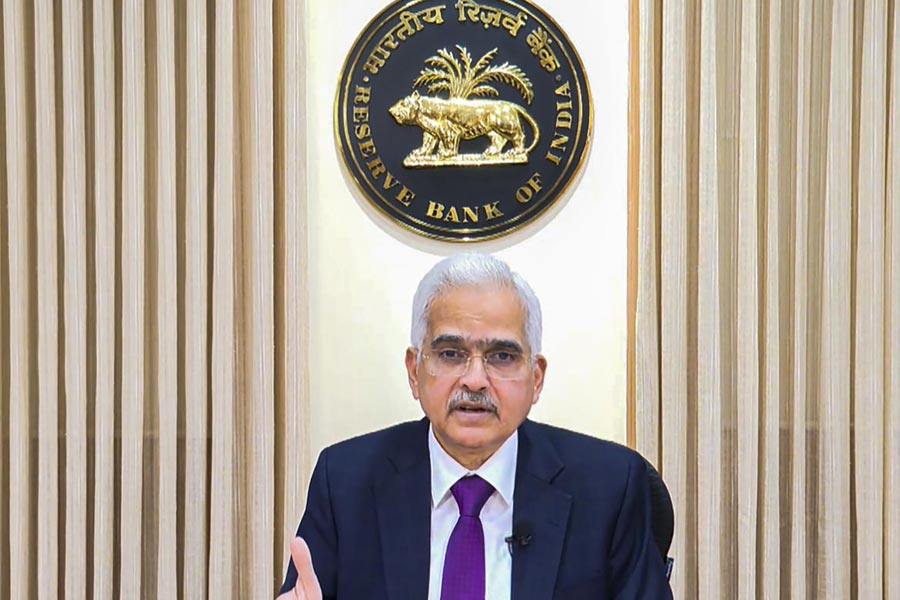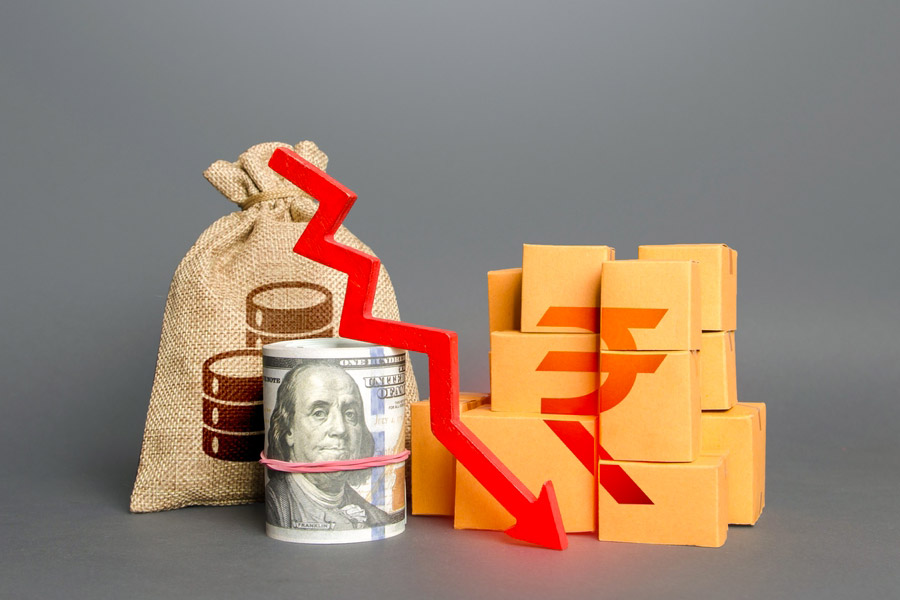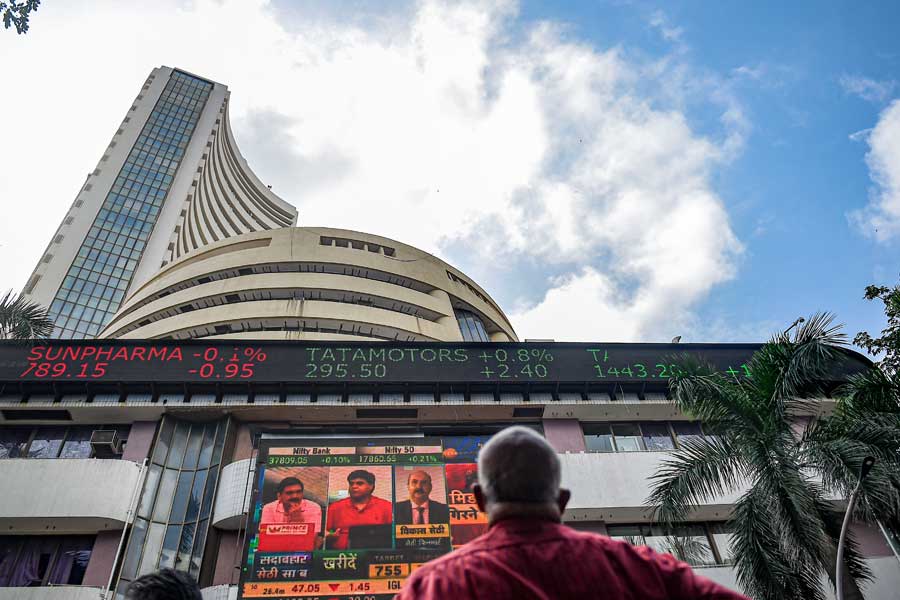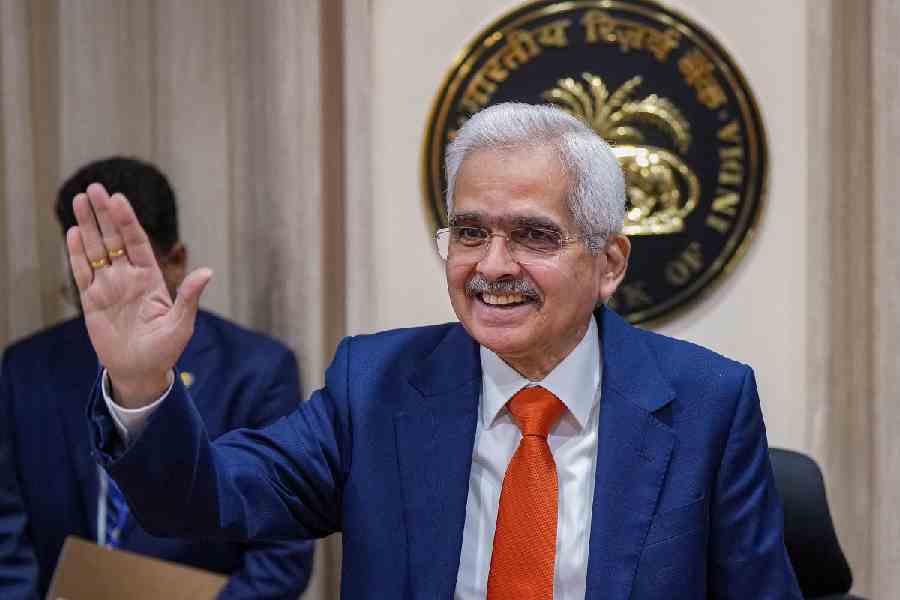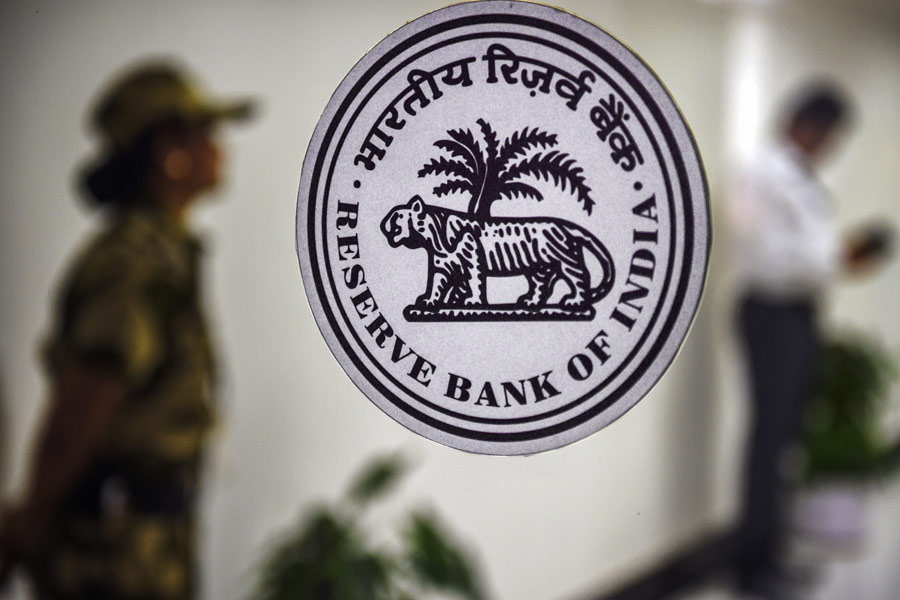The Reserve Bank of India on Friday kept the benchmark interest rates unchanged at 6.5 per cent for the seventh time in a row, citing concerns over food inflation in view of IMD's prediction of above normal maximum temperatures during April to June.
As RBI has held key policy rates steady, the EMIs on home and auto loans are likely to remain stable for some more time. The central bank has kept interest rates unchanged since February, 2023.
While unveiling the first bi-monthly monetary policy for the current financial year, RBI has retained its growth and inflation forecast for the current fiscal at 7 per cent and 4.5 per cent respectively.
"After a detailed assessment of the evolving macroeconomic and financial developments and the outlook, it (MPC) decided by a 5 to 1 majority to keep the policy repo rate unchanged at 6.50 per cent," RBI Governor Shaktikanta Das said.
He further said that the six-member MPC would remain focused on withdrawal of accommodation to ensure that inflation progressively aligns to the target, while supporting growth.
Referring to inflation, Das said food price uncertainties continue to weigh on the inflation trajectory going forward. Also, the tight demand-supply situation in pulses and the production of key vegetables warrant close monitoring, given the forecast of above normal temperatures in the coming months.
"Wheat harvesting is by and large over... wheat availability will not be affected as much as it did 2 years ago, when there were heatwave conditions starting from March. So, in wheat there is not so much concern. But vegetable prices will have to be watched and any other impact that heat wave conditions may produce," Das said at a post policy press briefing.
Retail inflation in February was 5.1 per cent, with food basket inflation at 8.66 per cent. For the full 2023-24 fiscal, inflation is projected at 5.4 per cent.
In the current fiscal, the RBI expects inflation to be around 4.5 per cent, with Q1 at 4.9 per cent; Q2 at 3.8 per cent; Q3 at 4.6 per cent; and Q4 at 4.5 per cent.
Recalling 7.8 per cent retail inflation in April, 2022, Das said the elephant in the room at that time was inflation.
"The elephant has now gone out for a walk and appears to be returning to the forest. We would like the elephant to return to the forest and remain there on a durable basis. In other words, it is essential, in the best interest of the economy, that CPI inflation continues to moderate and aligns to the target on a durable basis. Till this is achieved, our task remains unfinished," Das said.
The effort, he said, is now to ensure price stability on an enduring basis, paving the way for a sustained period of high growth.
Das said the Indian economy is projected to grow at 7 per cent in the current fiscal. This would be the fourth successive year with 7 per cent or above GDP growth rate. The Indian economy is estimated to have grown 7.6 per cent in 2023-24.
"With rural demand catching up, consumption is expected to support economic growth in 2024-25. Urban consumption stayed buoyant as evident from various indicators. The resilience in cement production, together with strong growth in steel consumption and production and import of capital goods, augur well for the investment cycle to gain further traction," RBI said.
It said strengthening of rural demand, improving employment conditions and informal sector activity, moderating inflationary pressures and sustained momentum in manufacturing and services sector should boost private consumption, it added.
"Improving global growth and trade prospects, coupled with our rising integration in global supply chains, are expected to propel external demand for goods and services. The headwinds from protracted geopolitical tensions and increasing disruptions in trade routes, however, pose risks to the outlook," RBI said.
The real GDP growth for Q1 FY'25 is projected at 7.1 per cent; Q2 at 6.9 per cent; Q3 at 7 per cent; and Q4 also at 7 per cent.
-
Rupee falls 6 paise to 83.45 against US dollar in early trade

-
Markets fall in early trade ahead of RBI policy announcement; Sensex tumble nearly 200 points

-
Reserve Bank of India retains 7 per cent GDP growth forecast for 2024-25 financial year

-
RBI retains inflation forecast at 4.5 per cent for FY25, lower than 5.4 per cent in last fiscal


